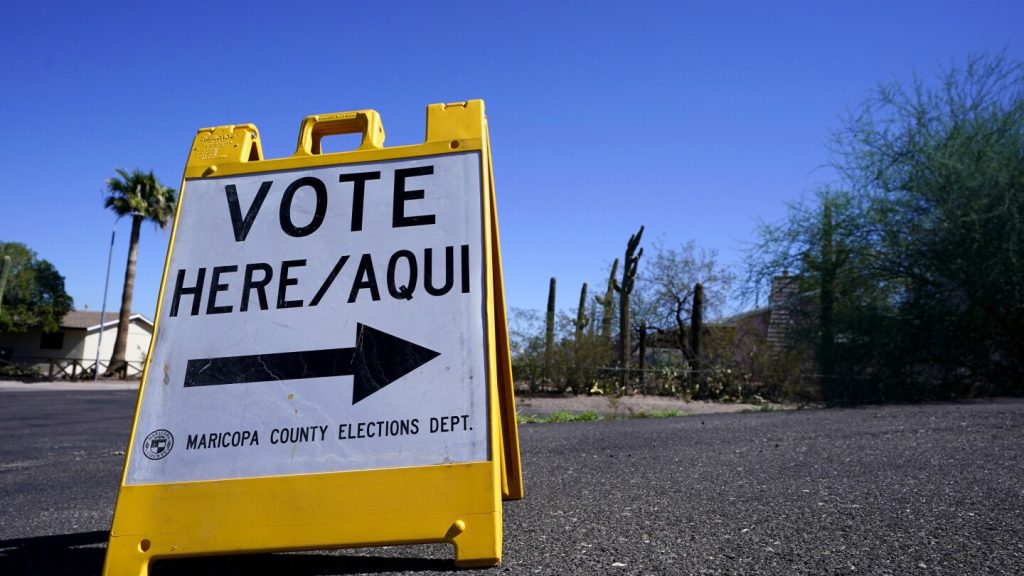In a recent ruling, a judge in Arizona rejected a request to require the state’s 15 counties to verify the citizenship of approximately 42,000 voters who are registered only to vote in federal elections. The lawsuit, filed on behalf of an Arizona voter and a conservative advocacy group, alleged that officials were not complying with a 2022 law requiring cross-checking of registration information with government databases. The plaintiffs sought a court order to ask federal authorities to verify the citizenship of these voters, but the judge concluded that the request was made too close to the Nov. 5 election and lacked legal standing.
The judge, U.S. District Judge Krissa Lanham, who was nominated by President Joe Biden, stated that the plaintiffs did not demonstrate clear harm or feasibility for their action in the midst of a general election. She declined to force county recorders to divert resources away from election preparations towards citizenship checks just weeks before Election Day. Despite this ruling, the plaintiffs have indicated that they intend to appeal the decision, with America First Legal, led by former Trump adviser Stephen Miller, stating that the appeal aims to ensure potential illegal aliens and noncitizens are lawfully removed from the Arizona voter rolls.
The lawsuit argued that county officials should not simply consult databases but should also ask federal authorities to verify the citizenship status of the federal-only voters. However, it was noted that federal law prohibits systematic voter-list purges within 90 days of an election. The plaintiffs clarified that they were only requesting a letter be sent to federal officials inquiring about the citizenship status of these voters, without seeking their removal from voter rolls. The 42,000 voters in question are distinct from a larger group whose citizenship status has not been confirmed but will still be allowed to vote in various elections in November.
In a separate issue, a database error was uncovered about a month ago that mistakenly designated nearly 98,000 voters as having access to the full ballot, despite their citizenship status not being confirmed. The state Supreme Court ruled that these voters, who were already eligible to vote in federal races, could also vote in state and local races for the 2024 general election. Subsequently, the number of misclassified voters increased to around 218,000. The office of Secretary of State Adrian Fontes stated that all individuals affected by the database error remain eligible to vote a full ballot, ensuring their ability to participate in the upcoming elections.
The handling of voter registration and citizenship verification has become a contentious issue in Arizona, particularly as the state serves as a presidential battleground. The lawsuit and subsequent ruling have highlighted the complexities and legal challenges involved in ensuring the integrity of the electoral process. While the judge’s decision may have prevented immediate action on verifying the citizenship of a specific group of voters, the legal proceedings and potential appeals indicate the ongoing debate and scrutiny surrounding voter registration practices in the state.
The role of county officials, state authorities, and federal regulations in overseeing voter registration and ensuring the accuracy of voter rolls remains a critical aspect of maintaining the democratic process. As Arizona prepares for the upcoming elections, the outcome of this legal dispute and any potential appeals could have broader implications for voter registration policies and procedures in the state. The debate between election integrity and access to the ballot continues to shape the political landscape, with implications for future voting rights and procedures in Arizona and beyond.


